WT 233
Page 233
Building Vocabulary Skills
You know what a submarine is. The word part marine means “ocean,” and the word part sub means “under,” so a submarine is a vessel that goes “under the ocean.” Now how about a submarine sandwich—also called a blimpie, a hoagie, a poor boy, a grinder, or a hero?
Building Your Vocabulary
Building a great sandwich takes special attention. So does building a great vocabulary. This chapter will help!
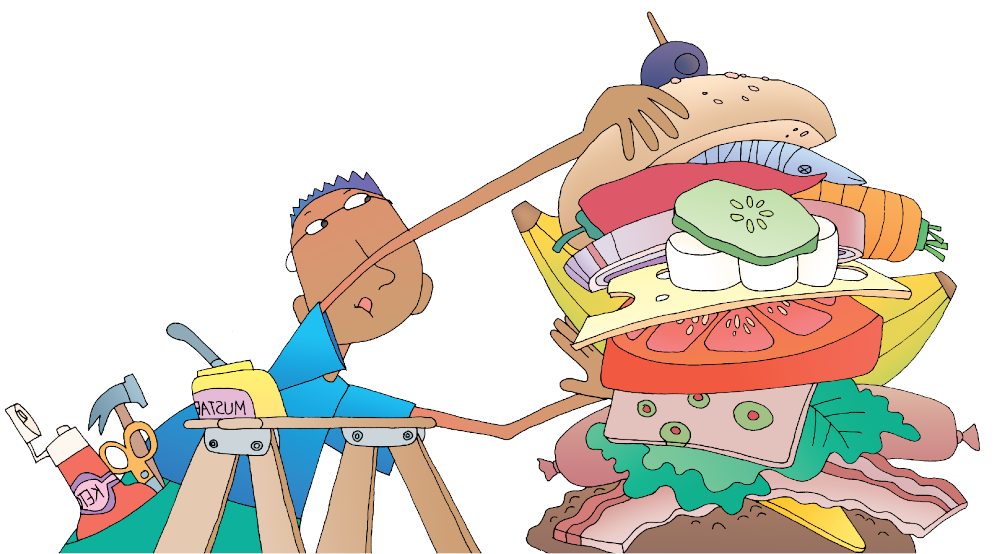
WT 234
Page 234
Learning New Words
1. Read, read, read!
The best way to learn new words is to read a lot. Books, magazines, newspapers, websites—read anything and everything!
2. Check nearby words.
The words that come before and after a new word (its context) may help you find its meaning. Check out the following sentence:
The animal expert talked about herons, cranes, and ibises.
Ibises? That’s probably a new word for you! Look at the words that come before it. Herons and cranes are both long-legged birds. Ibises are probably long-legged birds, too.
Here’s another sentence with a new word:
At work, my mom uses a microscope to look at germs.
A microscope is an instrument for looking at very small things. What words in this sentence help you know that?
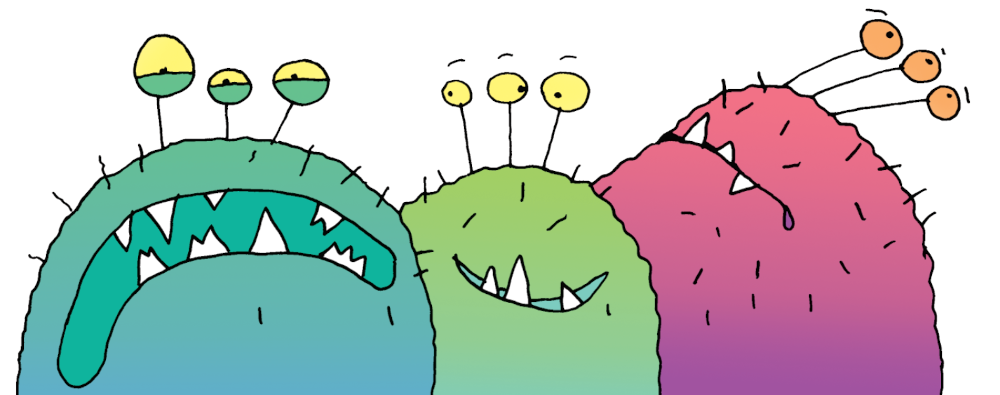
WT 235
Page 235
3. Keep a new-word notebook.
Make a special notebook for new words. Write the meaning and a sentence for each new word.
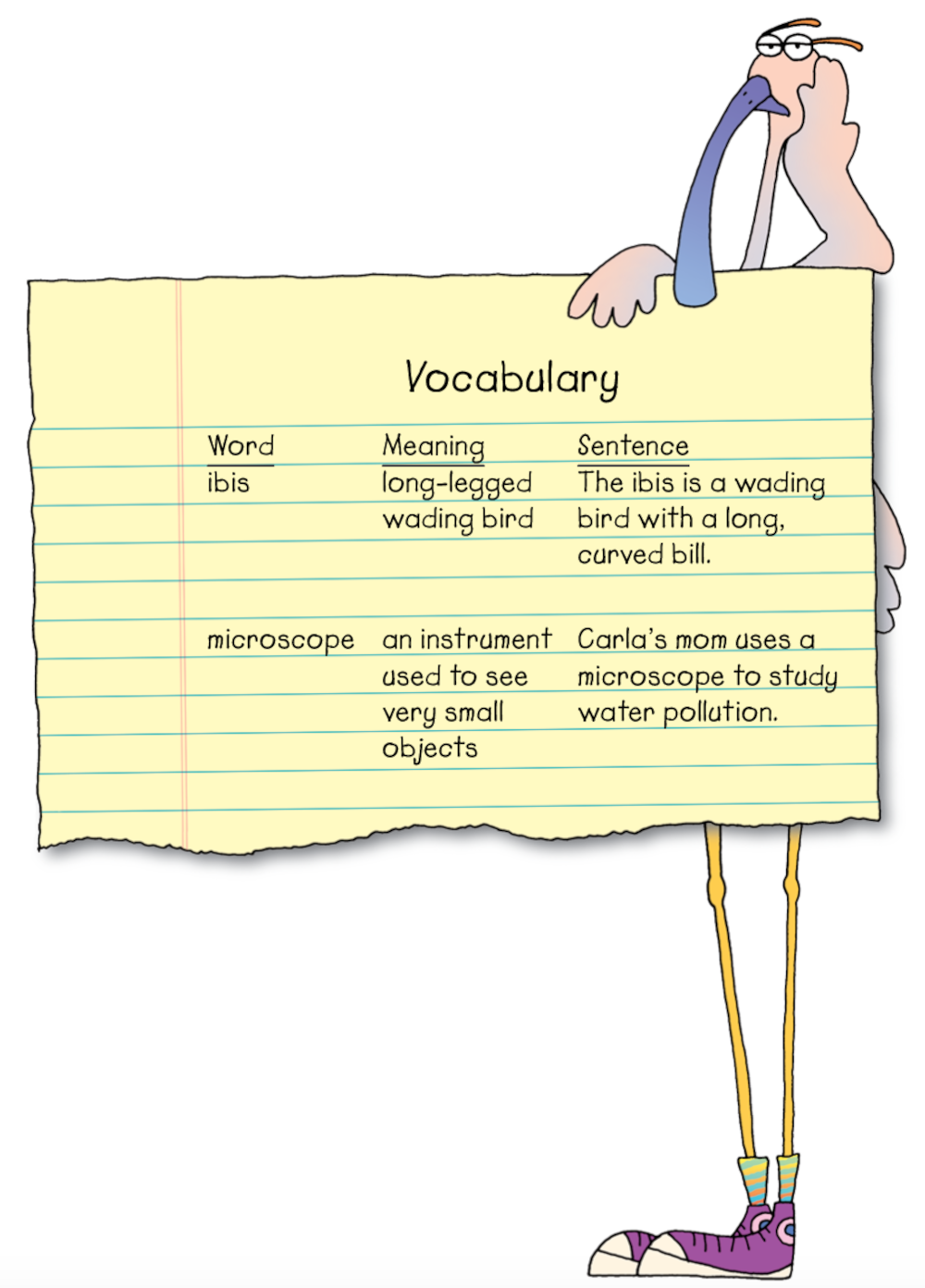
4. Practice using new words.
Try using new words in your writing and speaking. For example, each week, choose one new word from your notebook. Then think of ways to use it when writing or talking to friends and family. Using the word will help you remember it.
WT 236
Page 236
5. Look up the word in a dictionary.
Use a dictionary to look up new words. The dictionary gives you the meanings for each word plus much more.
Guide Words 🟪 These are the words at the top of the page. They tell you where you are according to the alphabet.
Spelling 🟪 The dictionary shows you the correct spelling for a word. It also shows whether a word should be capitalized or not.
Pronunciation 🟪 A dictionary shows you how a word should be said, or pronounced. The pronunciation is given in parentheses ( ). The pronunciation key at the bottom of the dictionary page will help you, too.
Part of Speech 🟪 The dictionary tells you if a word is a noun, a verb, an adjective, or another part of speech.
Word History 🟪 Some words have stories about their history—where they came from and their early meaning.
Meaning 🟪 Some words have only one meaning. Some words have many meanings.
Syllable Division 🟪 A dictionary shows you how a word is divided into syllables. (Look for the heavy black dots.)
Synonyms 🟪 For some words, the dictionary lists other words that mean the same thing.
WT 237
Page 237
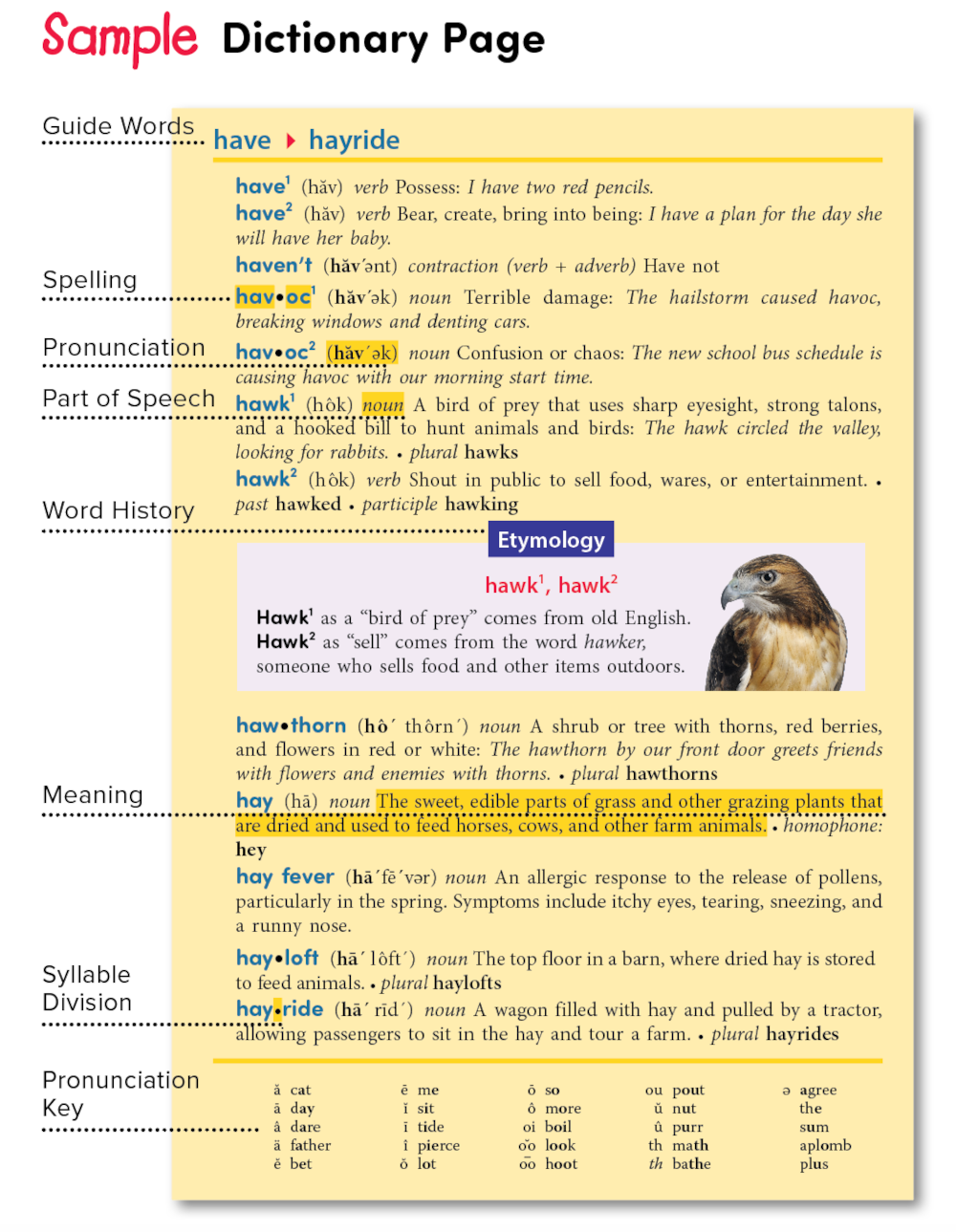
WT 238
Page 238
6. Use a thesaurus.
A thesaurus is a book of words and their synonyms. Synonyms are words that mean almost the same thing. For example, if you look up walk in a thesaurus, you may find stroll, hike, and step. A thesaurus may also list antonyms for some words. Antonyms are words that mean the opposite.
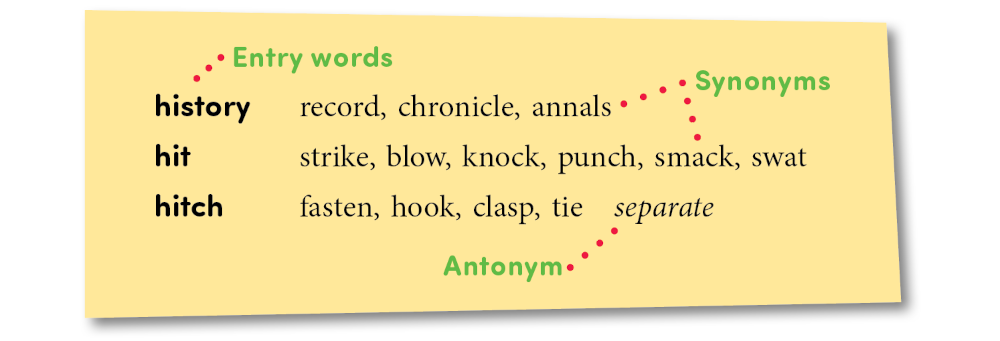
Look for the Right Word 🟪 Let’s say you use a thesaurus to find just the right word for hit in the following sentence:
Josie ________ the ball over the shortstop’s head.
Look up the word hit as you would in a dictionary. (As you can see below, it is located between history and hitch.)
Look for the Right Word 🟪 Review the list of synonyms and choose the word that works best for your sentence. In the example, the best word seems to be smack:
Josie smacked the ball over the shortstop’s head.
WT 239
Page 239
7. Learn about word parts.
You can figure out the meanings of new words by learning about the three word parts:
Root: A root is the main part of a word. This part is also called the word base.
Prefix: A prefix comes before the root and changes its meaning.
Suffix: A suffix comes after the root and changes its meaning.
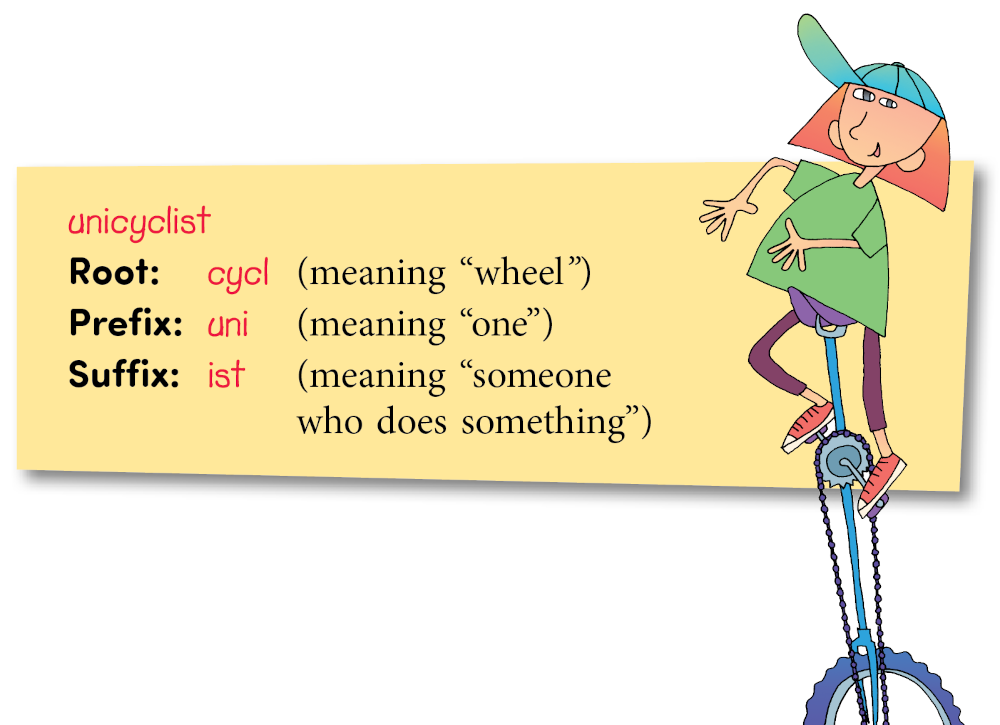
A Closer Look
Knowing the meaning of uni and ist helps you figure out the new word made from cycl:
🟪 If you know that the prefix uni means “one,” then unicycle must mean “one wheel.”
🟪 Also if you know that the suffix ist means “someone who does something,” then a cyclist must mean “someone who rides wheels.”
🟪 Finally, a unicyclist must mean “someone who rides a vehicle with one wheel.”
